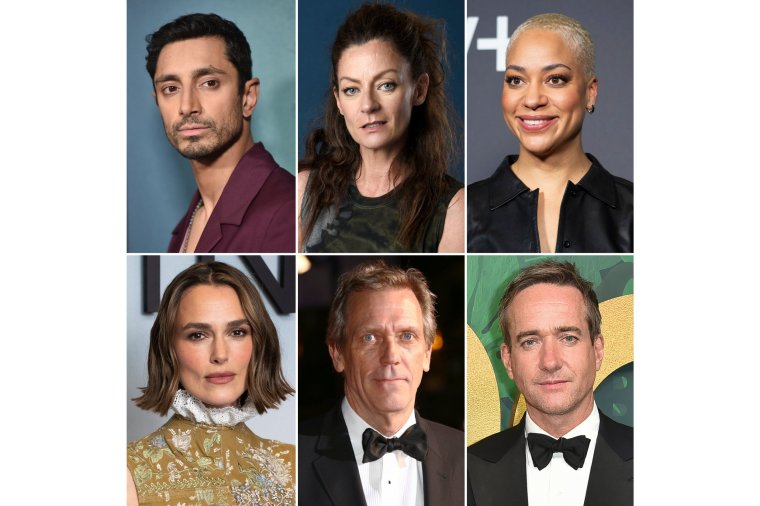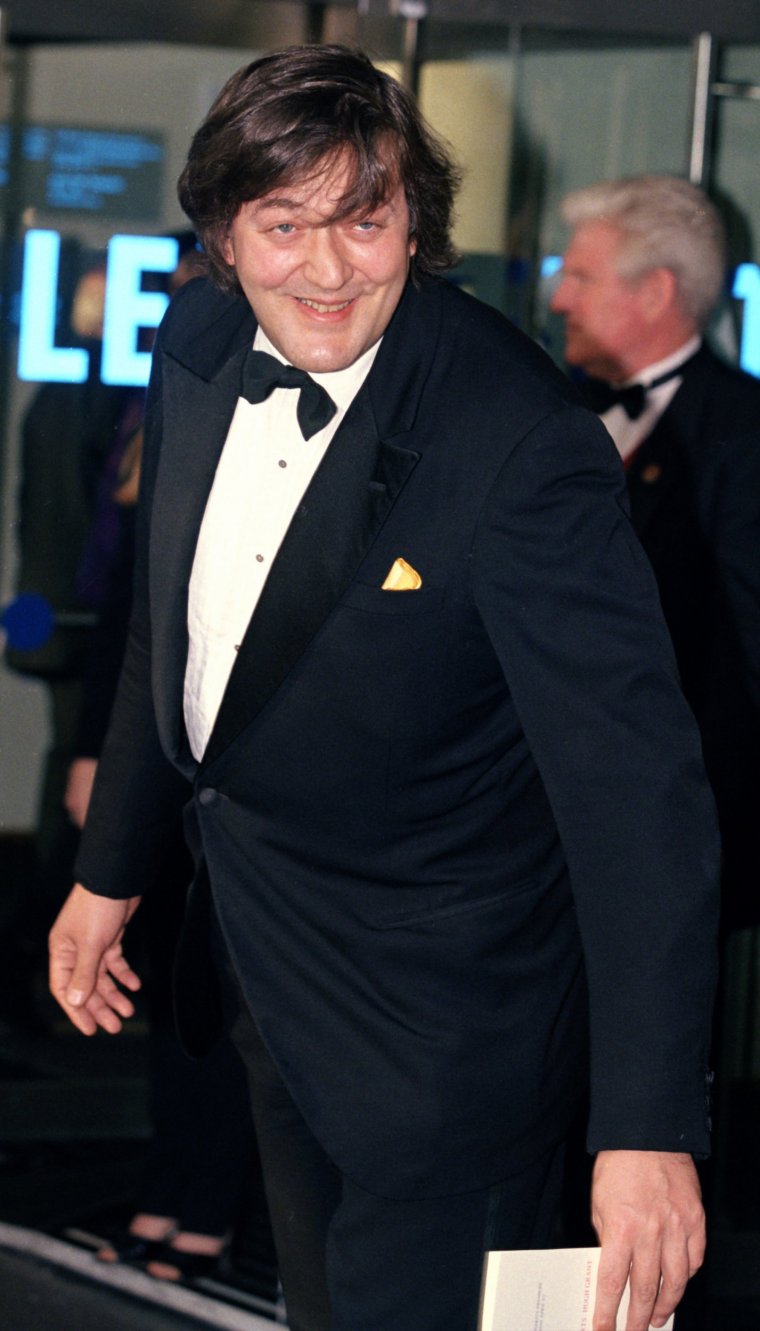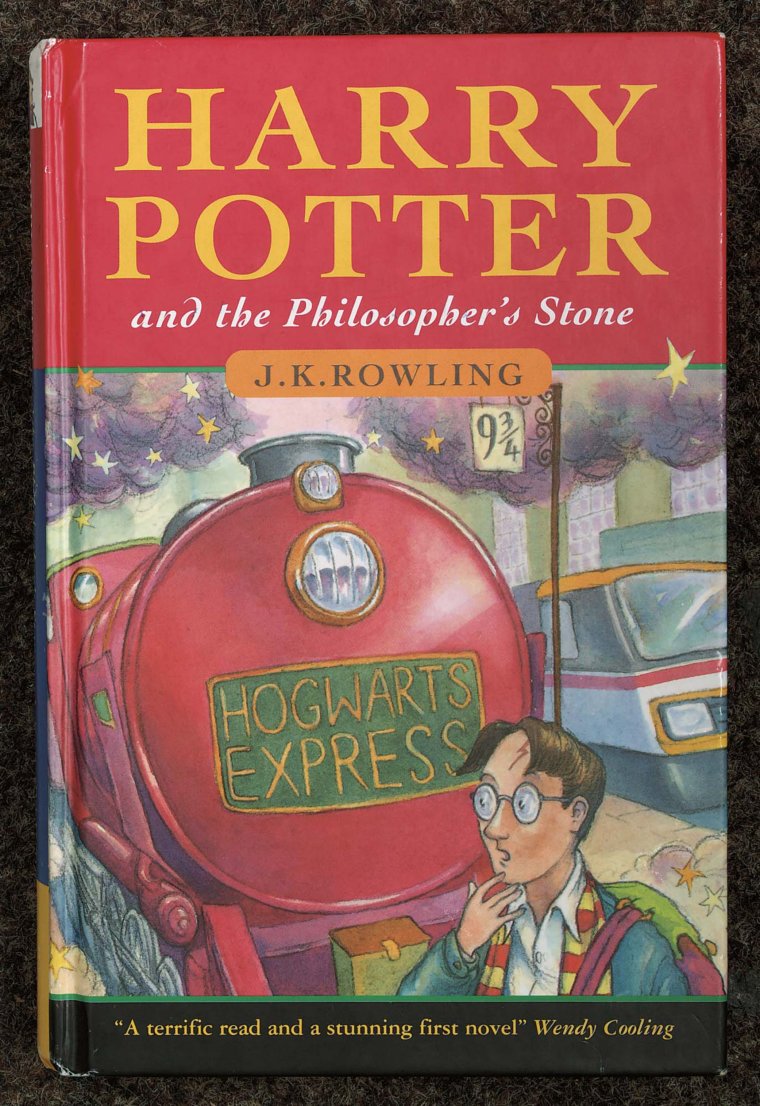Audible’s version has lost the tension and the heart – Stephen Fry’s still reigns supreme
The swish of a cape, the growl of a flying motorbike, the rattle of a Gringotts cart, the ribbit of a chocolate frog – Harry Potter and the Philosopher’s Stone is so rich in unmistakable sounds that Audible’s new, all-star, full-cast audiobooks ought to immerse us in the Wizarding World as intimately as ever before.
Unfortunately, despite their pedigree, immaculate detail, and what I assume must have been a hefty budget, they sound like a bad historical re-enactment, lose the thrill of the story and confirm for the umpteenth time that Harry Potter is the world’s most milked cash cow.
Let me get this out of the way: yes, I was raised on the Stephen Fry cassettes. I say raised – I’m 34 now and have spent more nights in the last 25 years falling asleep to Fry yelping lines like “troll, in the dungeon, thought you ought to know!” than I care to calculate, to both the dismay and delight of other bedfellows.
I expect I have heard the words “Chapter One: The Boy Who Lived” more than a hundred times, and can impersonate long passages of his rendition from memory. So yes, I am attached and biased – but despite many misgivings about how regularly these stories I so cherish are flogged for all they are worth, I have succumbed to every other reimagining in the franchise (films, computer games, stage adaptation, theme park) and so was willing to listen with an open mind.
Why shouldn’t Audible embrace the opportunity, 26 years since Fry’s recordings, to enchant new generations with another take? This new version stars Cush Jumbo, Hugh Laurie, Riz Ahmed and Michelle Gomez in its first book – the next six, released over the coming months, will feature Matthew Macfadyen, Keira Knightley, Ruth Wilson, Kit Harington, Daniel Mays, Simon Pegg, and James McAvoy (I could go on – the cast is more than 200 strong). How could it fail?

Well, because while a resplendent cast and plentiful sound effects might be required for, say, a radio play, it turns a novel into a bit of a mess.
It is not narrator Jumbo’s fault – she is a superb actor, with enviable, lovely diction and works valiantly with the material. But the performing she is permitted to do in this format is limited. Where Fry could transform, with his accent and intonation and the intake of a breath, into a dozen distinct and believable characters and creatures in the space of a few sentences and manipulate the emotions of his captive listener however he wished, Jumbo serves as a guide to keep an impressive but unwieldy cast moving forward.
She doesn’t have much artistic licence, and even where she might inject a bit of knowing or dread, it’s all rather straight, because she’s there to orchestrate everyone else. And why was the text not abridged to remove the “he said” and “she said” she must ludicrously say all the time, ruining the dialogue?
Conversations become staccato, description cursory, and the drama… well, it’s just all a bit inconsistent – some characters are underwhelming, some hammy and over the top. There is so much going on that it is impossible to be mesmerised, and rather than lose yourself in the action, you instead feel more outside of it than ever. You don’t picture the action – you picture the narrator talking on a stage and the actors demonstrating in the shadows behind her.
It turns it into an exercise in spectating and appreciating, whereas Fry, so fun and human you hung on his every word and so explosive you forgot each glorious and grotesque character was actually just one man, mastered the art of oral storytelling itself.
It is not helped by those unnecessary sound effects. A howl of wind will inform us it is windy, and then Jumbo will. Aunt Petunia will whimper in a corner before we are told exactly that.
The Hogwarts Express will screech onto Platform 9 ¾, which, of course, we know, because we have just been told.
The music, too, informs us too early how to feel: a sinister melody confirms Draco Malfoy is a baddie before he even speaks; a pleasant folky interlude announces that the newly-introduced Weasleys are probably quite nice.
When you show and tell all at once, nothing is left to the imagination.

Unfortunately, it also robs us of much of Harry Potter’s humour. Rowling’s novels are wryly observed, understand children’s intelligence and their weird little ways, and are unafraid to send up the adults quite marvellously.
Yet to allow the actors’ speech to shine, the narration becomes more of a sincere explanation, butchering the comedy in lines about Uncle Vernon hammering a nail with a fruitcake or spreading marmalade on his newspaper, or Dudley having the worst day of his life because “he was hungry, he’d missed five television programmes he’d wanted to see, and he’d never gone so long without blowing up an alien on his computer”.
Fry had the freedom to pause for comic effect or deploy his cartoonish impressions and was often hysterically funny.
Far worse, though, is that the stories are robbed of their tension. The reason these books are so special is because of how thrillingly they built that for even the very young reader. Harry Potter is a child just like any other, plucked from anonymity and told he is not only the most important and famous boy in the world but also that magic exists, his entire life is a lie, and that he’s off to boarding school and needs robes and a magic wand.
The gravity of this revelation and the ghastly enemies that pursue and threaten him – well, there could not be anything more exciting.

There is mystery, terror, emotion and wonder at the imagination, and about what on earth is coming. Here, the story is recounted as if we all already know it – even down to the accents and intonation, some of which feel ripped off from Fry or the film.
And that is fatal for any literary adaptation. I was lucky enough to read this book as a child believing, because of its cover illustration, that it was about trains, and discover to my delight and astonishment otherwise.
Decades and billions of dollars later, a blind introduction to the wizarding world is rare and I concede that most children probably know at the outset it is a story about magic. But we should never accept that, never assume that, never deprive them of the chance to imagine why this sad, lonely child is receiving strange, wax-sealed letters.
Children don’t care about big stars or sound effects – they want to be entertained. Like all classic books, Harry Potter is destined to be retold again and again – but in each new version we should treat the reader or audience as if they have no clue of the adventure on which they are about to embark and find new ways to interpret the action and characters and inspire and absorb them (and bring fresh meaning to existing fans, too).
If it is treated like old news, and reduced to mere “intellectual property” lazily phoned in again and again, there is no defence that Harry Potter has not plummeted from marvel to moneyspinner, with the purity of the stories diluted – and the magic lost completely.
‘Harry Potter and the Philosopher’s Stone’ is available on Audible from Monday 3 November
